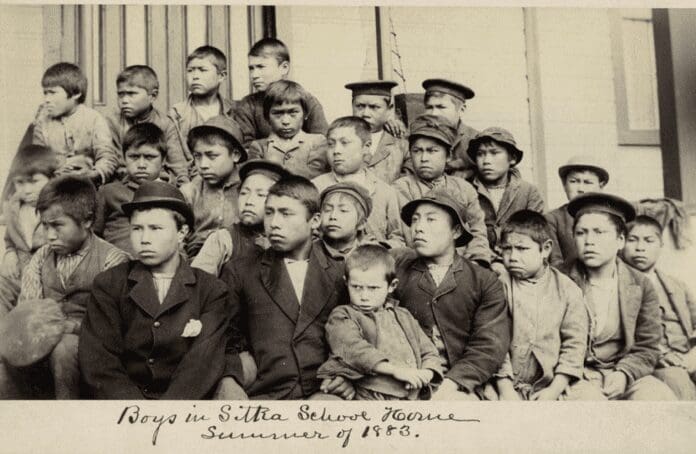There were at least 367 boarding schools across the United States in the 19th and 20th centuries, according to the National Native American Boarding School Healing Coalition, a Minneapolis-based advocacy group.
Most were government-run; many others were run by Catholic and Protestant churches.
The national healing coalition called Pope Francis‘ comments a historic first step, but urged the Vatican to repatriate Indigenous artifacts in its museum collections and called on religious organizations to open their school archives.
In listening sessions held through the Oklahoma Catholic Native Schools Project, many participants told positive stories of school experiences, Callison said, though the church is committed to documenting the traumatic ones too. “You’re going to hear things you don’t want to hear,” he said.
The project will also include archival research and individual interviews with those affected. At least 11 Catholic boarding schools operated in Oklahoma.
“We need to get to the truth before we can deal with whatever hurt or celebrate whatever success” the schools achieved, Oklahoma City Archbishop Paul Coakley said.
Several church groups — including Quakers, Methodists and some Catholic religious orders — are backing pending legislation in Congress that would go beyond the Interior report. It would create a truth and healing commission, modeled on Canada’s, to investigate the boarding school legacy.
The New England Yearly Meeting of Friends — a regional group of congregations — issued an apology last year for Quakers’ historic sponsorship of such schools, acknowledging they were undertaken with “spiritual and cultural arrogance.”
“We are deeply sorry for our part in the vast suffering caused by this system and the continuing effects,” the New England group said.
It’s important for Quakers to accept such responsibility, said Paula Palmer, a Quaker from Colorado whose research has identified about 30 Native American boarding and day schools that were run by Quakers.
“The yearly meetings voted to support, operate and finance” the schools, she said. “So it’s really the yearly meetings who have the responsibility to respond. They were the ones who also participated in the whole project of forced assimilation of Indigenous children.”
The Jesuit Conference of Canada and the United States has hired an archival researcher to document its own boarding school history.
The order is “committed to examining and sharing the truth of our history, even where that is difficult,” said the Rev. Ted Penton, secretary of the Jesuit conference’s Office of Justice and Ecology.
The Episcopal Church’s General Convention in July is expected to vote on a statement that would “acknowledge the intergenerational trauma caused by genocide, colonialism” and the operation of boarding schools and “other systems based on white supremacy.”
The convention will also consider authorizing a “comprehensive and complete investigation” of the church’s operation of such schools. The proposals came from a group appointed by denominational leaders.
Such measures are strong, but local dioceses also need to research their own histories and advocate for Indigenous peoples, said the Rev. Rachel Taber-Hamilton, rector of Trinity Episcopal Church in Everett, Washington. Taber-Hamilton, whose heritage includes the Shackan First Nation of Canada, is an Episcopal Church representative to the worldwide Anglican Indigenous Network.
“It’s not enough to say, ‘I’m sorry, and here’s some money,’” she said. “We first have to do some very hard work of listening to the pain.”
___
Associated Press religion coverage receives support from the Lilly Endowment through The Conversation U.S. The AP is solely responsible for this content.
This article originally appeared here.

